Home salon services company YesMadam sparked immediate backlash after claiming they surveyed employees about their workplace stress before sending out an email letting those stressed workers know they were fired—except YesMadam claims it was a marketing stunt gone wrong.
An initial post alleged that YesMadam had dismissed approximately 100 employees following the results of a mental health survey indicating widespread workplace stress. Anushka Dutta, identified as an employee, shared a leaked email from the HR department on LinkedIn.
It reads:
"Recently we conducted a survey to understand your feelings about stress at work. Many of you shared your concerns, which we deeply value and respect."
"As a company committed to fostering a healthy and supportive work environment, we have carefully considered the feedback. To ensure no one remains stressed at work, we have made the difficult decision to part ways with employees who indicated significant stress."
"This decision is effective immediately and affected employees will receive further details separately. Thank you for your contributions."
You can see the email below.
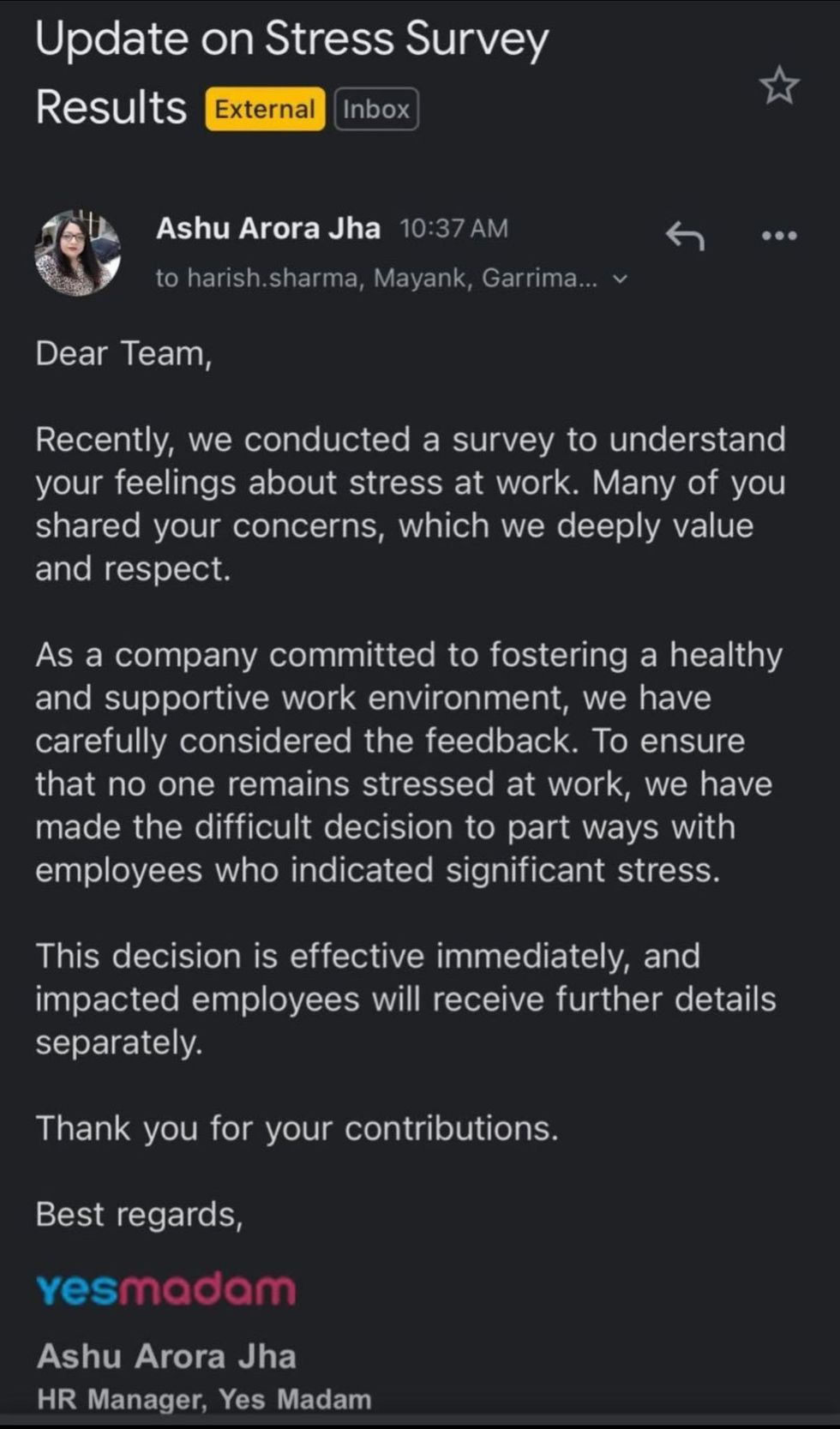
The message immediately sparked angry reactions.
Amid the backlash, YesMadam issued a statement clarifying that no employees had been terminated. The company explained that the social media post was part of a larger campaign aimed at raising awareness about workplace stress, not an announcement of layoffs.
It reads:
"We sincerely apologize for any distress caused by recent social media posts suggesting we dismissed employees for being stressed. Let us be clear: We would never take such an inhuman step. Our team is like family, and their dedication, hard work, and passion are the foundation of all our successes."
"The social media posts were a planned effort to highlight the serious issue of workplace stress. And to those who shared angry comments or voice strong opinions, we say Thank you. When people speak up, it shows they care - and care is at the heart of our business."
The company claimed the employees in question "weren't fired; they were given a break to rest," "weren't let go; they were encouraged to release their stress," "they weren't laid off; they were offered a chance to relax," and that they "weren't sacked; they were urged to rest and recharge."
The company added:
“In today’s hyper-connected world, work-life boundaries are fading, stress is widespread, and productivity often overshadows employee wellbeing. Happy employees build stronger businesses, and we’re here to lead the way in creating a culture that reflects this belief.”
YesMadam emphasized its "commitment to employee well-being" by unveiling the country’s "first de-stress leave policy." This new initiative grants employees six paid days off specifically to unwind, along with a complimentary at-home spa session. The policy, the company claimed, is designed to support mental health and help staff recover from work-related stress.
It concluded:
"We firmly believe that the backbone of any great organization is not built on stressed shoulders but on happy minds. So let's make employee well-being the new norm. Let's create businesses that thrive on care, collaboration, and compassion."
"Over to you Corporate & Startup India. Let's walk this path together."
You can see the response below.
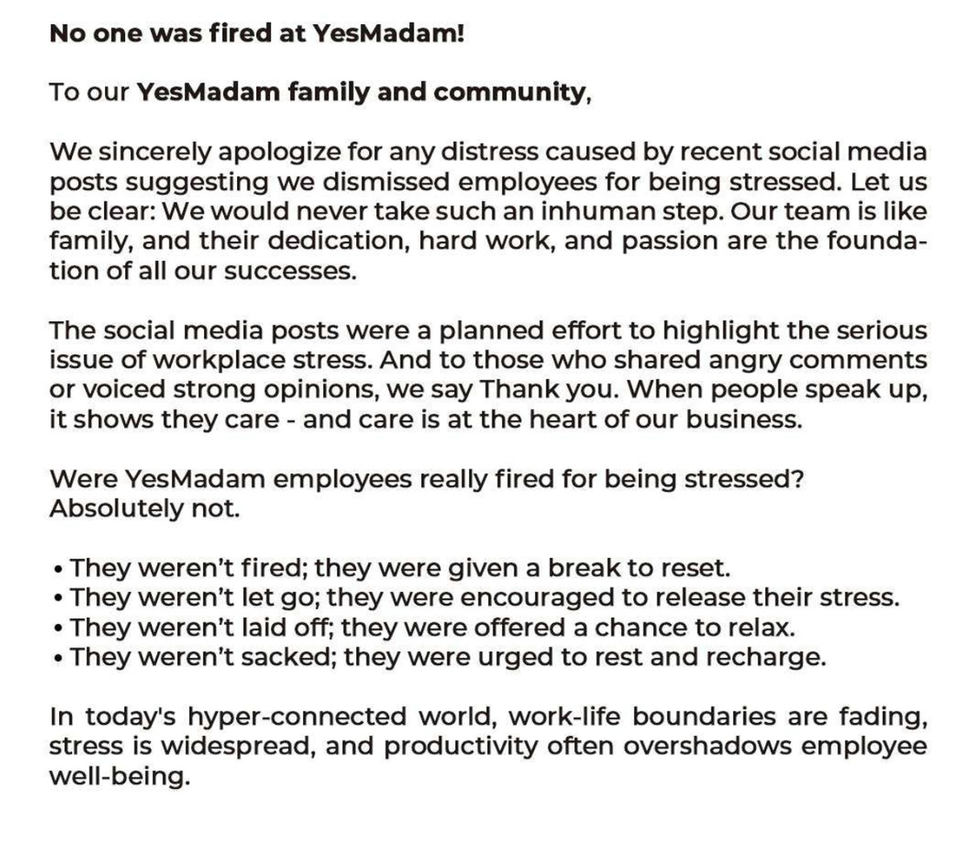
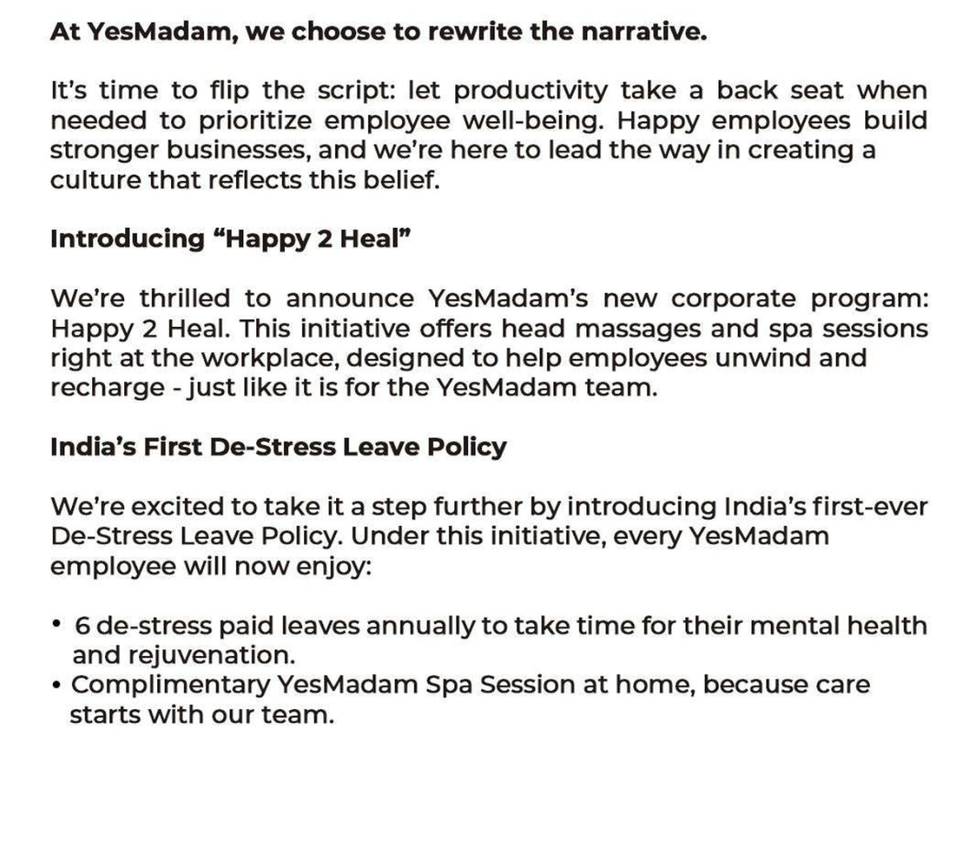
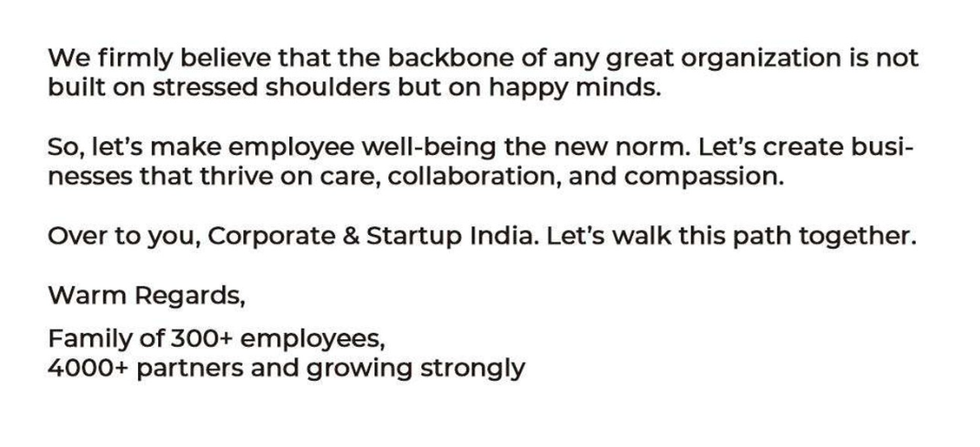
The backlash was fierce.
Of course, YesMadam is not the only company to make headlines for bungling its communication with its employees and showing who leadership really is—far from it.
Last year, MillerKnoll CEO Andi Owen sparked backlash after addressing employees' concerns about the potential loss of their bonuses. In response, she said they should not "spend their time" in "pity city" worrying about the bonuses they didn't receive and instead concentrate on the money the company actually needed to make.
In late 2021, Better CEO Vishal Garg found himself at the center of controversy after he laid off 900 employees, 9% of the company's workforce, over a Zoom call just one day after receiving a $750 million cash infusion as part of a merger with a special purpose acquisition company, or SPAC.
Emails that surfaced at the time show that Garg berated Howard Newman of the investment firm Pine Brook Partners, a top venture capital investor, calling him "sewage" and an "ingrate and a thug and a miserable miser" after plans to take Better public fell apart.
Employees have also criticized Better's toxic work culture, with one former employee saying that Garg, who “leads by fear,” would "threaten employees to work harder, faster and not be lazy, but there was never clarity on what the consequences might be.”

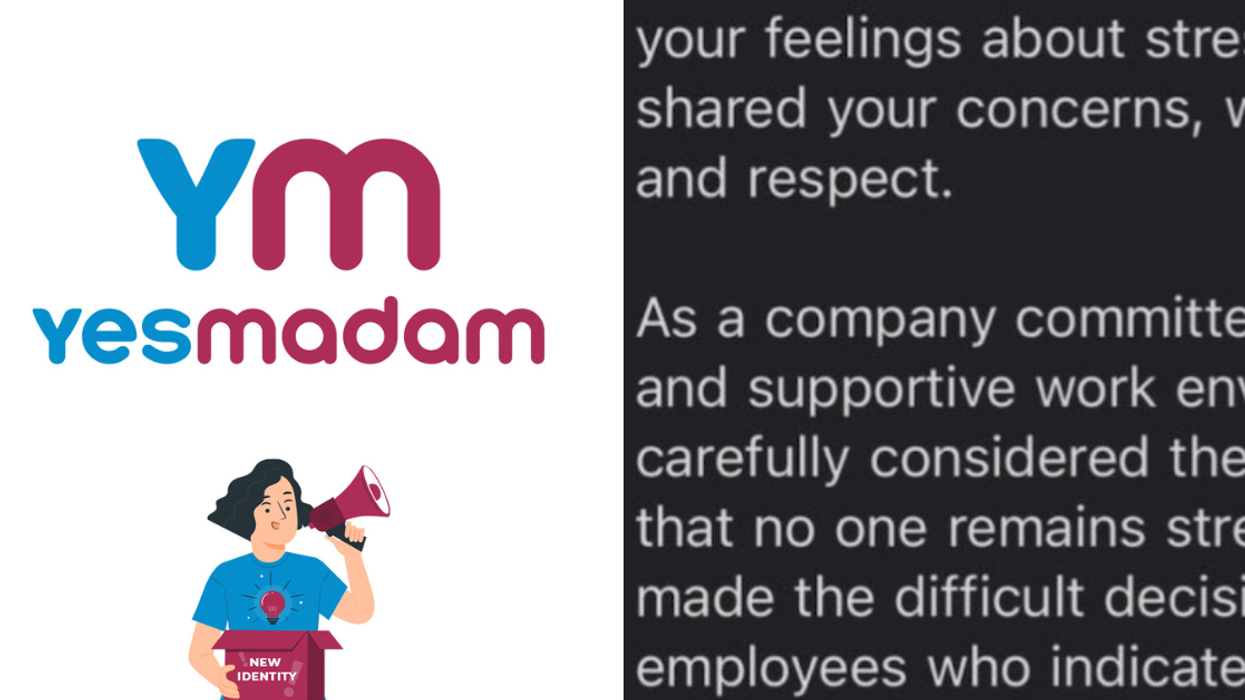












 The Benny Show
The Benny Show
 @neilforreal/Bluesky
@neilforreal/Bluesky @savannahcat/Bluesky
@savannahcat/Bluesky @qadishtujessica.inanna.app
@qadishtujessica.inanna.app @v-ron/Bluesky
@v-ron/Bluesky @nelnelnellie/Bluesky
@nelnelnellie/Bluesky @beatlenumber9/Bluesky
@beatlenumber9/Bluesky @pinkzombierose/Bluesky
@pinkzombierose/Bluesky
 @theunobsolete/TikTok
@theunobsolete/TikTok @theunobsolete/TikTok
@theunobsolete/TikTok @theunobsolete/TikTok
@theunobsolete/TikTok @theunobsolete/TikTok
@theunobsolete/TikTok @theunobsolete/TikTok
@theunobsolete/TikTok @theunobsolete/TikTok
@theunobsolete/TikTok @theunobsolete/TikTok
@theunobsolete/TikTok @theunobsolete/TikTok
@theunobsolete/TikTok @theunobsolete/TikTok
@theunobsolete/TikTok @theunobsolete/TikTok
@theunobsolete/TikTok @theunobsolete/TikTok
@theunobsolete/TikTok @theunobsolete/TikTok
@theunobsolete/TikTok @theunobsolete/TikTok
@theunobsolete/TikTok @theunobsolete/TikTok
@theunobsolete/TikTok @theunobsolete/TikTok
@theunobsolete/TikTok @theunobsolete/TikTok
@theunobsolete/TikTok @theunobsolete/TikTok
@theunobsolete/TikTok
 @laysuperstar/TikTok
@laysuperstar/TikTok @laysuperstar/TikTok
@laysuperstar/TikTok @laysuperstar/TikTok
@laysuperstar/TikTok @laysuperstar/TikTok
@laysuperstar/TikTok @laysuperstar/TikTok
@laysuperstar/TikTok @laysuperstar/TikTok
@laysuperstar/TikTok @laysuperstar/TikTok
@laysuperstar/TikTok @laysuperstar/TikTok
@laysuperstar/TikTok @laysuperstar/TikTok
@laysuperstar/TikTok @laysuperstar/TikTok
@laysuperstar/TikTok @laysuperstar/TikTok
@laysuperstar/TikTok @laysuperstar/TikTok
@laysuperstar/TikTok @laysuperstar/TikTok
@laysuperstar/TikTok @laysuperstar/TikTok
@laysuperstar/TikTok @laysuperstar/TikTok
@laysuperstar/TikTok